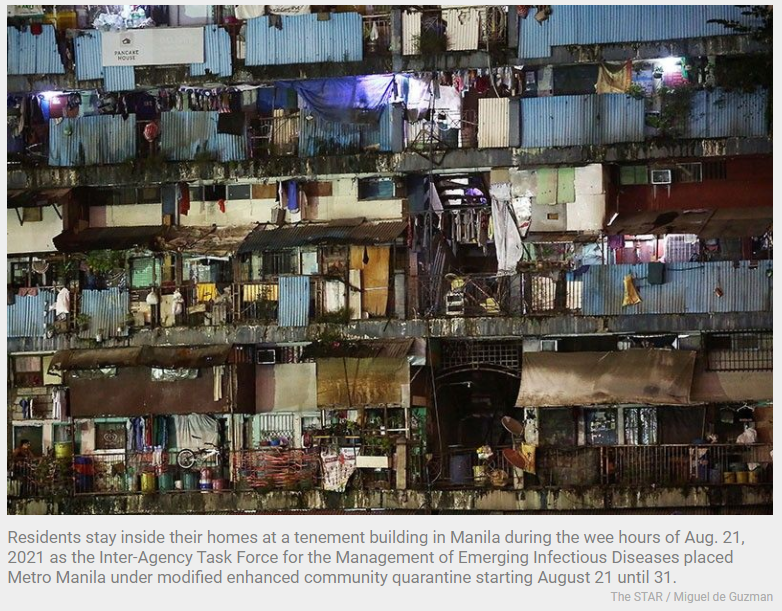Philippines: Proposed 2022 budget ‘too small’ to rescue pandemic-hit economy — IBON
MANILA, Philippines — President Rodrigo Duterte’s proposed P5.024 trillion budget for 2022 is “too small” to stimulate demand in the consumption-starved economy and adequately respond to the pandemic, a non-government think tank said.
“The Duterte administration is not spending enough to stimulate the economy and, moreover, is not even spending on health, ayuda (aid), and small businesses which are the most important things to recover quickly and stop deprivation from worsening,” IBON Foundation said in a commentary published on Tuesday.
The Department of Budget and Management on Monday submitted to Congress the proposed outlay for 2022, which is higher by 11.5% than this year’s national budget. The submission marked the beginning of legislative scrutiny on the crucial budget bill that would keep the government, but more importantly the next administration, funded amid a costly and long war on coronavirus.
The social services sector will receive the biggest chunk of the budget with P1.9 trillion, 15.2% higher than the current outlay. Of that amount, P252.4 billion will go to the health sector.
But despite the “record” amount, IBON said the increase in size of the 2022 budget was “average” at a time more spending is needed to pull the economy out of the coronavirus hole. This convinced IBON that the budget proposal, at its current form, is a reflection of economic managers’ “misguided fiscal conservatism” that is “counterproductive and needs urgent correction.”
Finance Secretary Carlos Dominguez III did not respond to a request for comment.
“It is only 11.5% larger than the 2021 budget which is just about the average 11.3% increase in the annual government budget recorded over three-and-a-half decades since 1987,” IBON explained.
“There is no stimulus.”
Such criticisms against economic officials are not unique amid the pandemic. Economists have warned that the Philippines could suffer from deep economic scarring as the pandemic drags on, something that, they said, could have been prevented had economic managers abandoned their hesitation to spend big over fears of a credit rating downgrade.
Recovery remains fragile for the Philippines. Gross domestic product grew 11.8% year-on-year in the second quarter, as base effects magnify the figure. But quarter-on-quarter, the economy shrank 1.3%, a consequence of hard lockdowns imposed earlier this year.
With Metro Manila and some provinces back to strict restrictions this month, IBON said “more proactive fiscal policy is needed” to fix the problem. As it is, the absolute level of economic output is unlikely to rebound to 2019 levels before 2023, the group added.
One thing the government can do, IBON said, is to further hike next year’s budget.
“The Duterte administration was able to manage a 23.6% increase in the 2017 budget on the back of huge increases in infrastructure and military spending,” the think tank said.
“A similar increase for 2022, but with stress on health measures to contain the pandemic, help patients and frontliners, ayuda for families, and support to small businesses, implies a ?5.57 trillion budget instead,” it added.
Source: https://www.philstar.com/business/2021/08/24/2122290/proposed-2022-budget-too-small-rescue-pandemic-hit-economy-ibon


 English
English




